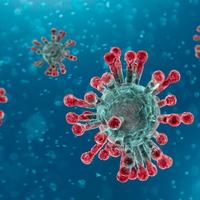2.Quali sono i sintomi del coronavirus?
2.Was sind die Symptome des Coronavirus?
2.Ποια είναι τα συμπτώματα του κοροναϊού;
2.What are the symptoms of the coronavirus?
2.¿Cuáles son los síntomas del coronavirus?
2. quels sont les symptômes du coronavirus ?
2.コロナウイルスの症状は?
2.Wat zijn de symptomen van het coronavirus?
2.Jakie są objawy koronawirusa?
2) Quais são os sintomas do coronavírus?
2.Koronavirüsün belirtileri nelerdir?
2.Які симптоми коронавірусу?
I sintomi principali sono raffreddore, tosse secca, febbre, stanchezza, dolore ai muscoli.
Die Hauptsymptome sind Erkältung, trockener Husten, Fieber, Müdigkeit, Muskelschmerzen.
The main symptoms are cold, dry cough, fever, fatigue, pain in the muscles.
Başlıca belirtileri soğuk algınlığı, kuru öksürük, ateş, yorgunluk, kaslarda ağrıdır.
Questi possono essere facilmente confusi con una normale influenza.
Diese können leicht mit einer normalen Grippe verwechselt werden.
These can easily be confused with a normal flu.
Bunlar normal bir grip ile kolayca karıştırılabilir.
I sintomi, tuttavia, possono diventare più gravi e, in questi casi, si presentano problemi respiratori, polmonite e perfino la morte.
Symptoms, however, can become more severe, leading to respiratory problems, pneumonia, and even death.
Ancak semptomlar daha şiddetli hale gelerek solunum problemlerine, zatürreye ve hatta ölüme neden olabilir.
Domande e Risposte:
Fragen und Antworten:
Questions and answers:
Sorular ve cevaplar:
1.
1.
1.
Quali sono i sintomi lievi che possiamo avere in presenza del coronavirus?
What are the mild symptoms we can have in the presence of the coronavirus?
Koronavirüs varlığında sahip olabileceğimiz hafif semptomlar nelerdir?
I principali sono il raffreddore, la tosse, la febbre sopra i 37°C, dolori muscolari.
The main ones are colds, coughs, fever above 37 ° C, muscle aches.
Başlıcaları soğuk algınlığı, öksürük, 37 ° C'nin üzerinde ateş, kas ağrılarıdır.
2.
2.
2.
E' possibile confondere il coronavirus con una normale influenza?
Kann man das Coronavirus mit einer normalen Grippe verwechseln?
Is it possible to confuse the coronavirus with a normal flu?
Koronavirüsü normal bir griple karıştırmak mümkün mü?
Sì, è possibile.
Yes, it is possible.
Evet mümkün.
All'inizio, in forma lieve, i sintomi sono gli stessi.
At first, in mild form, the symptoms are the same.
İlk başta, hafif formda semptomlar aynıdır.
3.
3.
3.
Quando si parla di coronavirus?
When do we talk about coronavirus?
Koronavirüs hakkında ne zaman konuşacağız?
Quando i sintomi che abbiamo diventano più gravi.
When the symptoms we have become more severe.
Semptomlar daha şiddetli hale geldiğinde.
4.
4.
4.
Quali sono i sintomi più gravi?
What are the most serious symptoms?
En ciddi belirtiler nelerdir?
Problemi a respirare, polmonite e purtroppo anche la morte nei casi estremi.
Problems with breathing, pneumonia and sadly death in extreme cases.
Zor nefes alma, zatürre ve ne yazık ki aşırı durumlarda ölüm.

